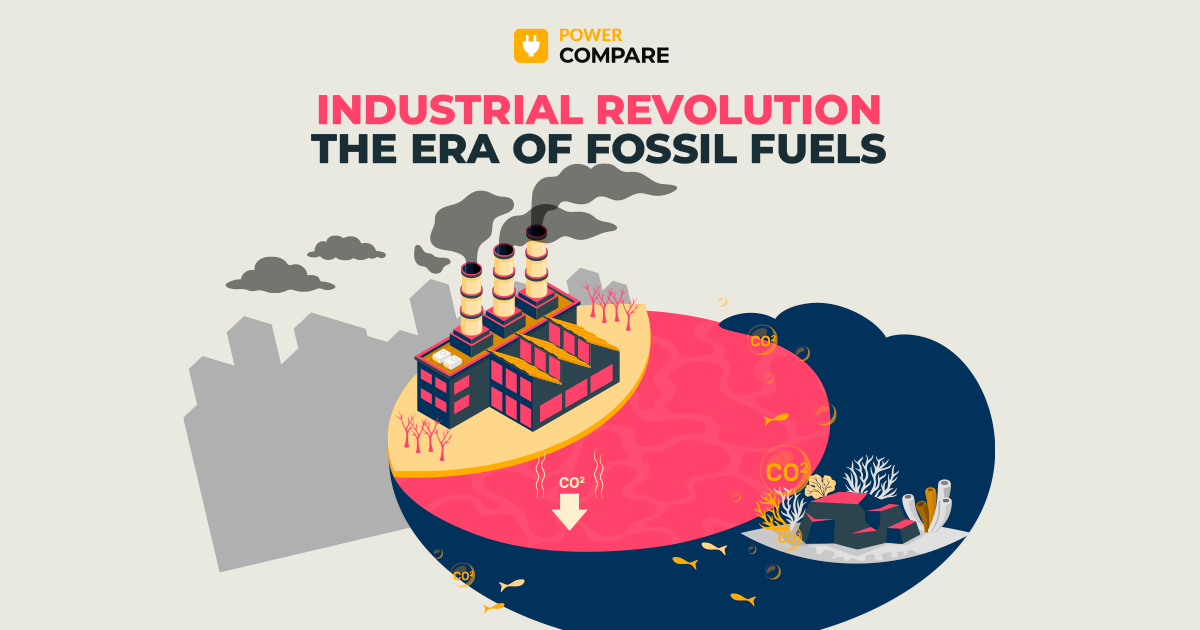What was the Industrial Revolution? And how did it impact how we source electricity today?
The Industrial Revolution is considered a major turning point in history, and is often compared to the development of agriculture in terms of significance to humanity. This period of history went from the 1700s to the early 1900s, and gave rise to fossil fuels.
These fossil fuels were used for the first ever coal-fired steam engine. Gradually, more machines became powered by fossil fuels, such as the spinning jenny, the loom, mechanised factories, and electricity. With fossil fuels, such as coal, powering machinery and infrastructure, populations grew rapidly. Our society and technology would not be where it is today without this era of history.
To this day, we still use fossil fuels to generate a portion of the electricity we use in New Zealand homes. While it isn’t the cleanest form of energy, it is one of the most reliable sources.
How Do Fossil Fuels Work?
Fossil fuels are a source of energy. They are made from the decomposition of plants and animals over millions of years. We can mine and drill for these resources in the Earth’s crust. Fossil fuels contain carbon and hydrogen, and when we extract this material, we can burn it to create electricity. There are generally three types of fossil fuels that we use: coal, oil and gas.
Coal is typically found in rock deposits where there have been layers and layers of dead plant and animal matter.
Oil is generally found in layers of rock, and it’s usually a solid material. We have to heat it until it forms thick oil that engineers use to make gasoline, which fuels most of our vehicles.
Natural gas is often found in pockets above where oil is located. It can also be found in layers of rock that don’t contain oil. This natural gas is generally made up of methane.
When we burn fossil fuels to create electricity, we generate carbon dioxide, which is harmful for the environment, including the atmosphere.
Cleaner Energy
It has been a long time since the end of the industrial revolution, and scientists and engineers have been looking for ways to reduce our reliance on fossil fuels, and instead generate our energy from other sources. New Zealand homes get their energy from a range of sources, including renewable energy sources such as wind, solar, hydro power, and geothermal energy. Renewable energy is generally defined as a source of energy that is constantly replenished. These materials are cleaner and healthier for the environment. However, energy retailers in New Zealand get their electricity from all of these sources, including fossil fuels. So it’s always a good idea to minimise your power consumption. It’s good for the planet and it’s amazing for your wallet, because it’ll help lower your power bills.
8 Ways to Lower your Power Bill
Compare Power
Now that you know a little more about power, and where it has come from throughout history, it’s a good time to jump on Power Compare and compare your power bill. You can unlock potential savings that truly make a difference to your monthly budget just by taking a few minutes to compare on our user-friendly platform. It also helps to know where your monthly power bill sits with the average bill in different parts of New Zealand. It’s always a good idea to know where you sit, so you can search for a better deal. You may find a deal that offers more value for money, or one at a cheaper rate. Go on, compare power today, so you can smile more tomorrow and stop paying more than necessary!



